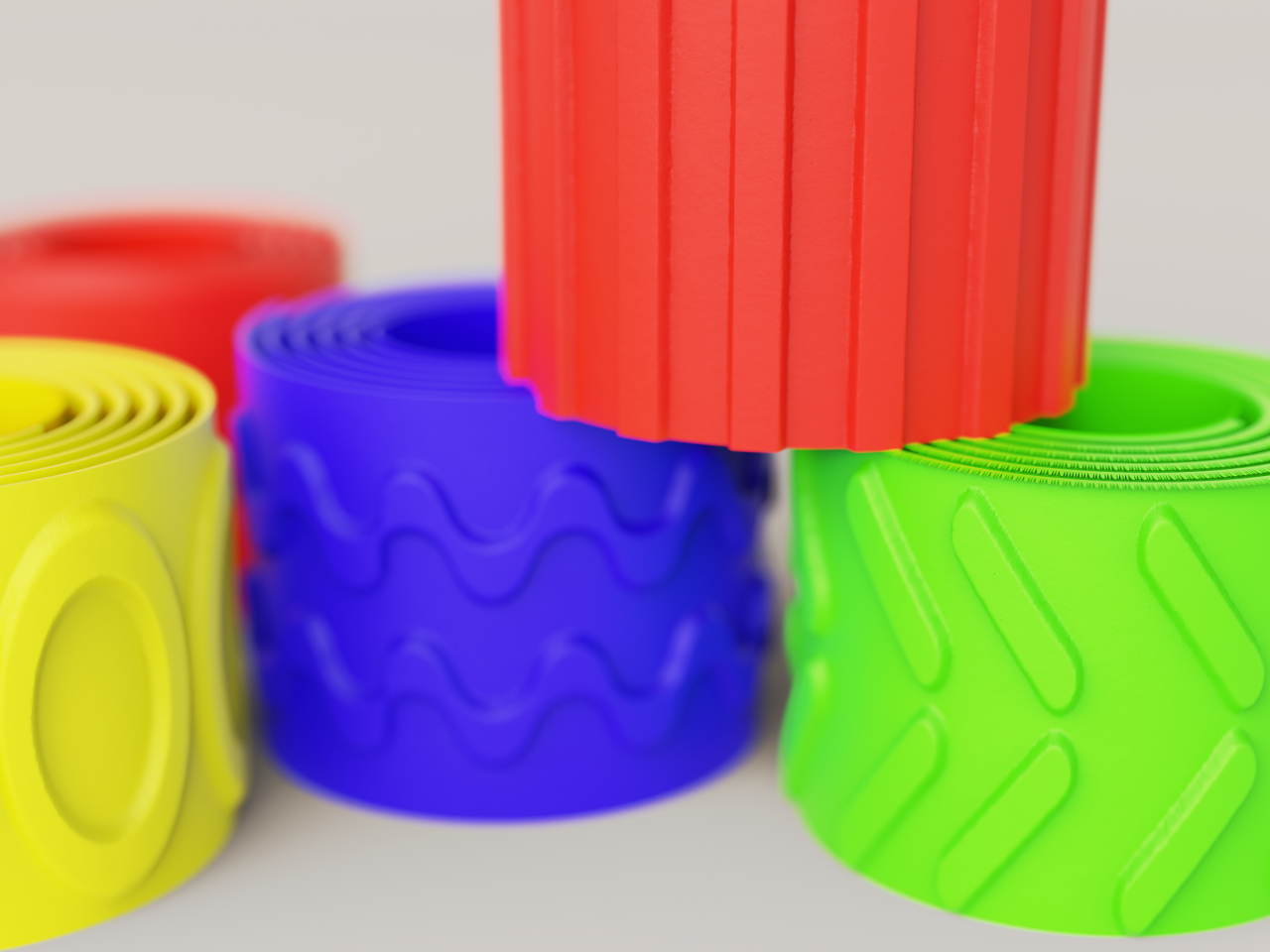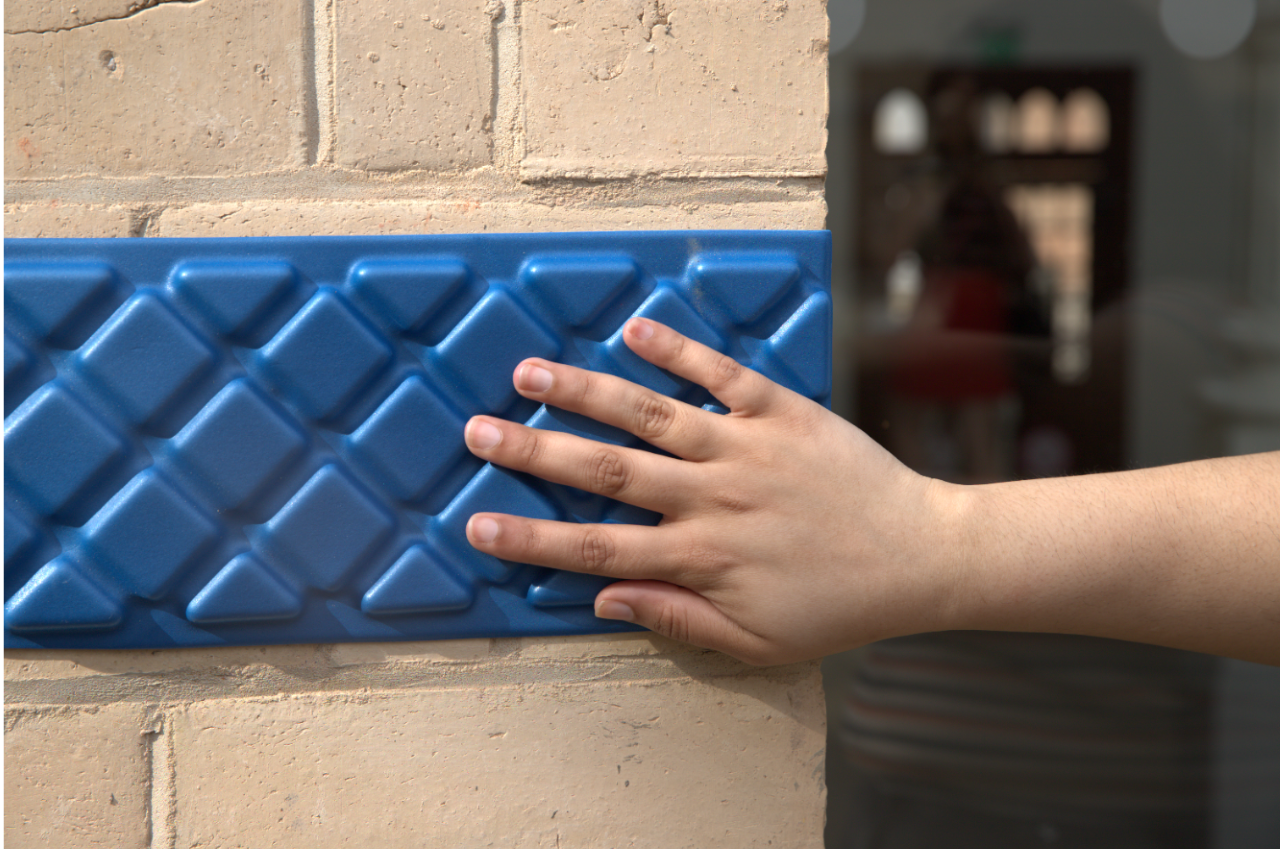Student's way-finding tapes set to give more independence to the visually impaired
Published: 30/07/2021
A BA (Hons) Product Design student has developed a range of textured tapes designed to assist the visually impaired so they can navigate around their home and public buildings independently.

Kavya Jain, was inspired to make a product that would improve the lives of the visually impaired after one of her loved ones experienced a deterioration in their eyesight. Kavya’s family encouraged her to create something that could help people who have experienced sight loss, so she began to look into tasks that the visually impaired have to do every day, regardless of their age, and how she could make these tasks easier.
The tapes – named SENSEI - are made from EVA foam, a non-toxic and sustainable material. The tapes have an adhesive backing allowing them to be easily attached to the floor or to the walls, so visually impaired children can hold onto them and find their way around a space.

Through her research, Kavya found there to be a lack of interiors and products that are accessible for the visually impaired, especially when it comes to products designed for children. “Parents of visually impaired children told me how they’ve had to adapt toys and interiors in the home to make them safe for their children,” said Kavya. “This made me want to help an underserved community.”
Kavya’s research also revealed that one of the biggest worries of parents was how safe spaces were for visually-impaired children. So, her product is designed for use in schools, libraries and cafes too. However, the more Kavya learnt about the visually impaired community, she learnt that her tapes could also benefit users of all ages.
Each SENSEI tape is embossed with a different tactile pattern and assigned a location such as the bedroom or kitchen, so that users know which tape to follow by feel in order to get to where they want to go. For example, the tape to direct users to a bathroom is embossed with a wave pattern.
The main aim of SENSEI is to create interior spaces that are more inclusive. People who have gone through life with regular vision and experience sight-loss at a later stage can find it hard to adjust and adapt to the world. For this reason, I wanted to ensure that my product was very simple and accessible. The simplistic nature of the tapes makes them suitable for users of all ages. I also hope to create a universal language around the tapes, so that the textures mean the same thing to each user, no matter what space or environment they are placed in.
Kavya Jain, creator of Sensei tapes
Despite the COVID-19 pandemic, Kavya managed to ship small-scale prototypes of her tapes to her consumer research group so they could test them out and feedback to her.
Kavya’s designs are set to go on show for Nottingham Trent University’s Summer Show, which will see graduating artists and designers displaying their work as part of an online public exhibition. Kavya’s working prototypes can be seen alongside that of other product design students in the digital student showcase.
Kavya has carried out extensive research allowing her to create a product that will serve and benefit the visually impaired community. Despite the challenges presented by the COVID-19 pandemic, she hasn’t let this impact her work and Kavya has created a fantastic product
Grant Baker, Product Design lecturer